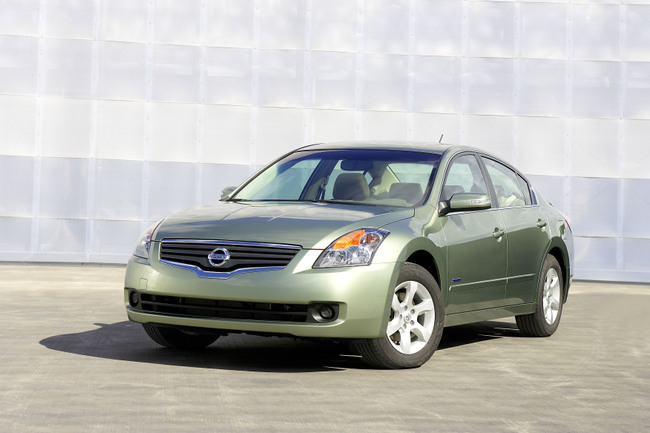|
All New Cars Will Be Hybrid By 2020
# August 14, 2008
All new cars will have some degree of hybridization by 2020, by which point battery technology will be ubiquitous and vehicles will communicate with one another and the road to make driving safer and easier.

That vision of the future is laid out in "Automotive 2020: Clarity Beyond the Chaos," (.pdf) by the IBM Institute for Business Value. The report, based on interviews with 125 auto industry executives in 15 countries, says the industry is on the cusp of revolutionary changes that will see environmental sustainability and technological innovation become top priorities as automakers respond to consumer demands for more efficient cars that don't sacrifice performance, comfort or reliability.
"In the next 10 years, we will experience more change than in the 50 years before," says an executive with a European automaker who, like all of those quoted in the report, was not named.
The revolution already has begun.
There is mounting agreement among automakers, policymakers and environmentalists that the electrification of the automobile is inevitable and most of the major automakers are developing hybrid and plug-in hybrid vehicles. Although such vehicles currently make up less than 3 percent of the market, the report finds "some degree of hybridization will be evident in all vehicles produced in 2020 and beyond." That may seem ambitious, but other studies say interest in gas-electric vehicles is exploding and sales could hit 2 million a year by 2013, when there could be 89 different models on the market.
Battery technology will be ubiquitous within 12 years, the report states, and automakers and their suppliers will focus much of their R&D on the software and electronics needed to integrate them into vehicles. "Energy storage is in the heart of the next generation of efforts for fuel economy," the report quotes one American executive saying. Several automakers plan to offer electric vehicles in America beginning in 2010, and Mitsubishi will begin testing one in California later this year. Still, battery costs -- which the report estimates at 10 to 15 percent of the cost of the cars that use them -- will remain a significant barrier to rapid market penetration.
Investment in biofuels will continue, although the technology "must undergo rapid evolution for global application and proliferation," the report states, noting that ethanol from corn and other food crops is a dead end but cellulosic ethanol "has the potential to see widespread acceptance." Traditional fossil fuels will comprise just 65 percent of the market by 2020, by which point average vehicle CO2 emissions will fall to 97 grams per kilometer -- seven grams less than the Toyota Prius emits today.
As for hydrogen, keep waiting. Although the report finds "hydrogen fuel cell vehicles will remain a viable alternative," even the optimists don't see them comprising more than a small fraction of vehicles by 2020. Few expect the infrastructure needed to generate, transport and distribute hydrogen to be in place anytime soon.
We'll see just as much innovation in vehicle electronics as our hybrid cars get smarter and do more in the years to come. We're already seeing the dawn of the .car era as BMW, Chrysler and other automakers rush to bring internet connectivity to your dashboard and companies like Volvo develop systems to make cars virtually crash-proof. By 2020, the report states, hybrid cars will communicate with one another to prevent accidents, communicate with the road to respond to changing traffic conditions and use telemetrics to diagnose and repair problems.
As hybrid cars increasingly rely on batteries and advanced electronic systems, automakers will have to ally themselves with the consumer electronics, telecommunications and energy industries, the report states. This, too, already is beginning to happen. Several automakers are working with Microsoft to develop their own versions of Sync. Nissan and NEC, like Toyota and Panasonic, are working together on batteries. General Motors has joined 34 utilities to prepare the nation's electrical grid for plug-in hybrid and electric vehicles. Such collaborations will only grow more common.
"The era when all work could be done within the industry is over," one Japanese executive says. "Now we need to interface with several external entities to get work done."
|
|

